The Insider’s Guide to Buying Equestrian Property
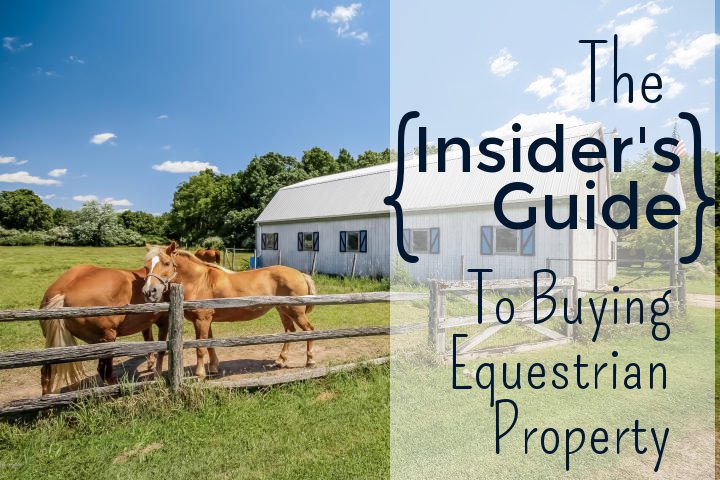
Great news — you’ve made the decision to buy horse property!
Congratulations! Michigan is home to some spectacular horse farms and ranches, so you’re likely to have a wide variety of properties to consider. You may be tempted to dive right in and start touring the areas you’re considering for your property, but we encourage you to be deliberate in your process, because we know the time you put in up front will pay big dividends later on.
To help you, we’ve put together this quick read — a primer of sorts — and of course, at any time, feel free to contact us at Michigan Horse Property.
So, let’s get started. There’s quite a bit to consider when searching for horse property. We’ll start first with some general questions, and follow that with a list of important considerations to keep in mind when searching for properties. Here we go:
1. What’s your level of interest in horses?
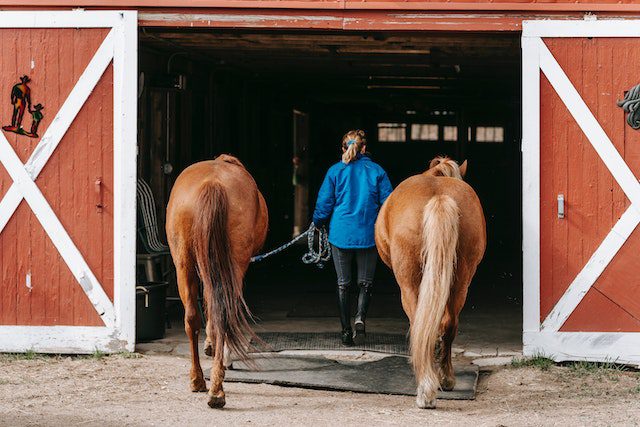 Of course, you like horses, or you wouldn’t have made the decision to buy horse property.
Of course, you like horses, or you wouldn’t have made the decision to buy horse property.
But beyond that, the spectrum ranges from wanting property that can accommodate one or two of your own horses, to a commercial horse facility that specializes in professional training, boarding, breeding, or more.
And keep in mind too, that your level of interest may progress, say from beginning novice to a fully involved professional, which may lead you to a new property or property upgrades.
2. Where do you want to be?
Naturally, there may be many variables that influence this decision, with the basic ones being things like a desire to be near friends and family, or to live in a particular school district or county, or near a particular city. But beyond that, keep in mind that your answer to Question #1 will also bring its own considerations, such as:
-
- Desire to be near facilities that accommodate your horse related interests, such as open state land, trails, or particular training or show facilities for specific types of horses
- Desire to be near the ‘hub of the industry’ for your particular horse activity. This is particularly important if you’re a professional serving a market, or if you’re aspiring to achieve levels of accomplishment in the horse industry. The ability to network easily with like-minded horse people may be a consideration.
3. Do you want to build new on vacant land, buy an existing horse property, or buy an existing property that can be renovated to accommodate horses?
You can specify one or be open to all of these possibilities, and your preference may be influenced by some of the factors to consider as you keep reading.
For now, know that each of these options has its own advantages and disadvantages.
– Building new will enable you to have exactly what you want, but it will also take more planning and lead time, and may be more expensive.
– Buying an existing property is likely to be quicker, and possibly less expensive, but you may not find exactly what you want.
– And buying an existing property that can be renovated may bring some advantages of the first two options, but require planning, patience and vision that not all buyers have.
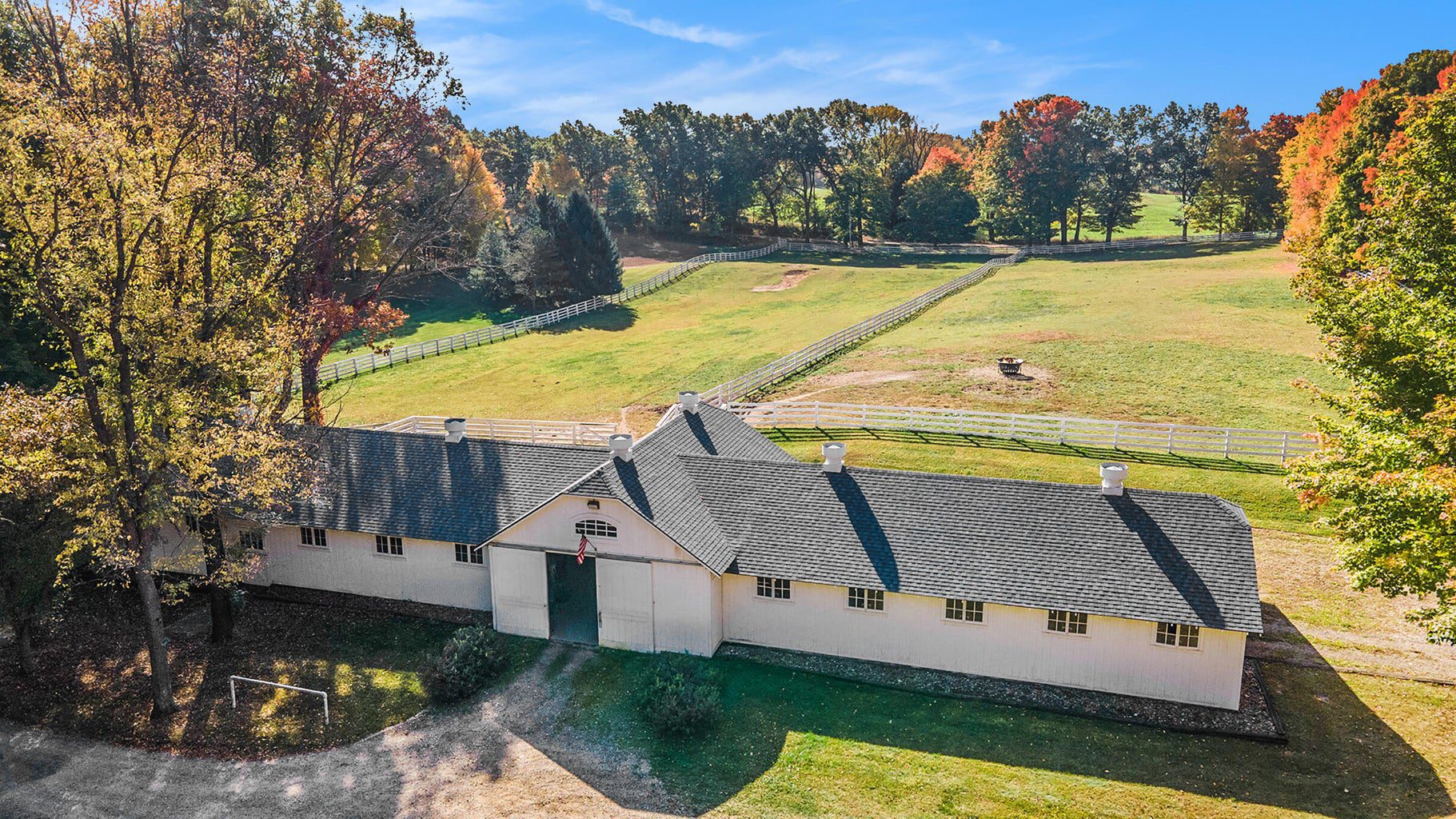
4. What is your price range or budget? Will it be a cash purchase or financed? Is it contingent on the sale of other property?
Like the answers to Question #3, each of these alternatives has its own advantages.
If you’re paying cash, you should be able to close on your purchase sooner, and possibly negotiate a better price.
If you’re financing your purchase, it’s best to be in touch with a lender in advance, to confirm your buying power and being the application process.
With those broader questions behind us, let’s get into more specific questions and important factors to consider:

How many acres are you looking for?
Think about the layout of the the farm — the residence, barn, stable, paddocks, round pen, and storage for equipment, hay, feed, tack, bedding, etc., as well as pastures and hayfields (unless you plan to purchase all your hay), riding arenas and on-site trails.
Are there zoning or other restrictions that need to be considered in the areas where you want your farm?
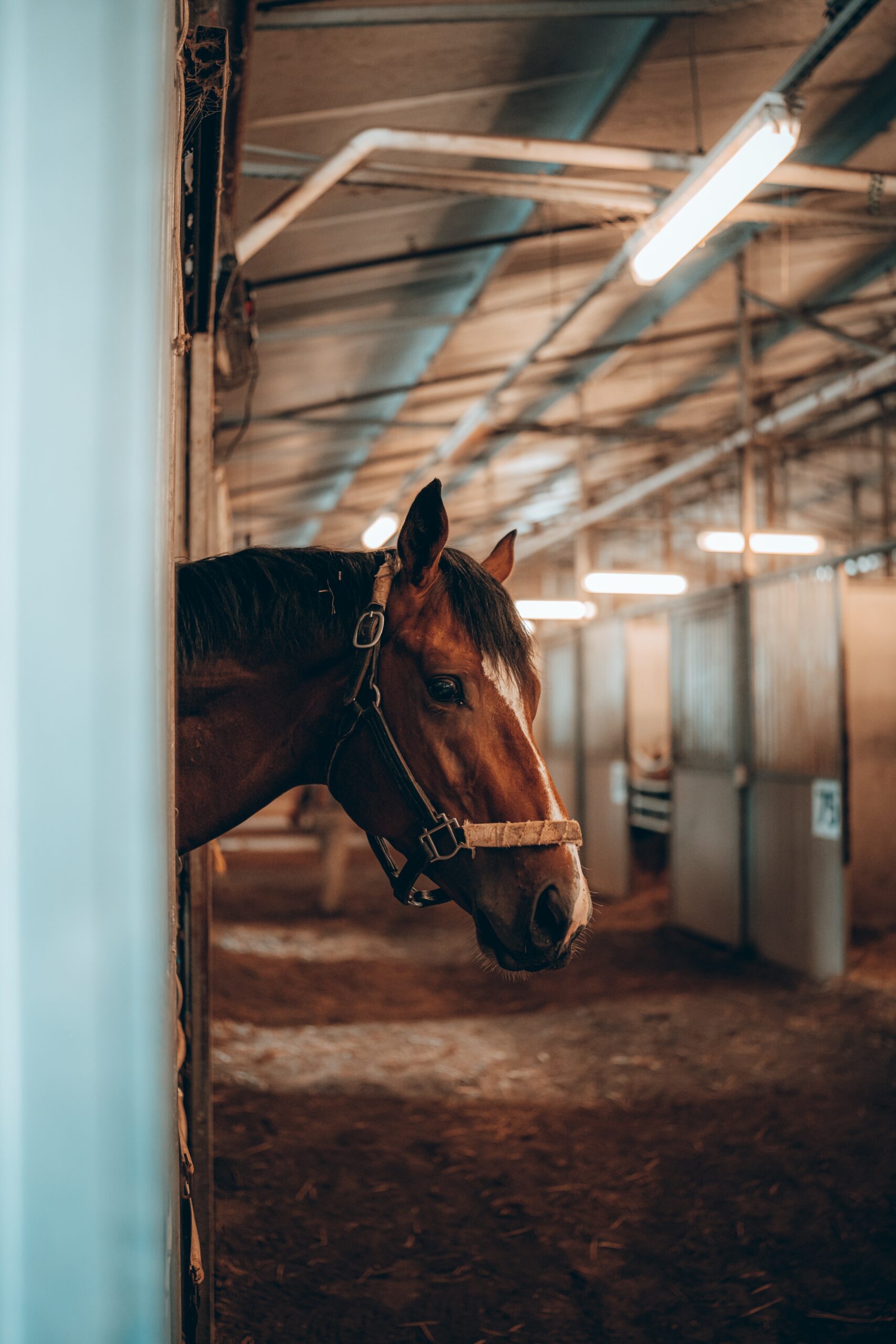 If you intend to maintain grazing pastures, you’ll want to allocate two acres per horse. Be sure to select properties where horses are a permitted use or allowed under a special use permit.
If you intend to maintain grazing pastures, you’ll want to allocate two acres per horse. Be sure to select properties where horses are a permitted use or allowed under a special use permit.
And be aware of boundary line setbacks, which can vary by unit of government.
Know your soils.
Know what the soil types are before purchasing the property.
During wet seasons, poorly-drained clay and loamy soils in areas of high horse traffic are a maintenance nightmare and can be a health problem for horse’s hooves.
Ideally, barns and paddocks should be on well-drained sandy soils, or if they are on fine-textured soils, they should be graded to promote positive water drainage away from barns and high traffic areas.
Many farms will have a variety of soil types, which should influence the layout of the farm based on the uses for which the soil types are best suited. High loam soils are great for hayfields and pastures to help withstand drought. Agriculturally marginal soils can be used for trail riding, training areas, and turnout areas where horses are kept on hay instead of pasture.
What would you like the topography to be like?
The lay of the land has both practical and aesthetic relevancy. A picturesque horse farm on a rolling, tree-lined landscape has enormous aesthetic appeal.
However, from a practical standpoint, some level ground is desirable for building and training areas. Also, hayfields and pastures do best on level or gently rolling tillable ground.
Topography controls how well surface water drains from the property. Wetlands, swamps, and ‘pothole ponds’ characterize poorly drained areas, which contribute to ecological diversity, but have little practical use on a horse farm.
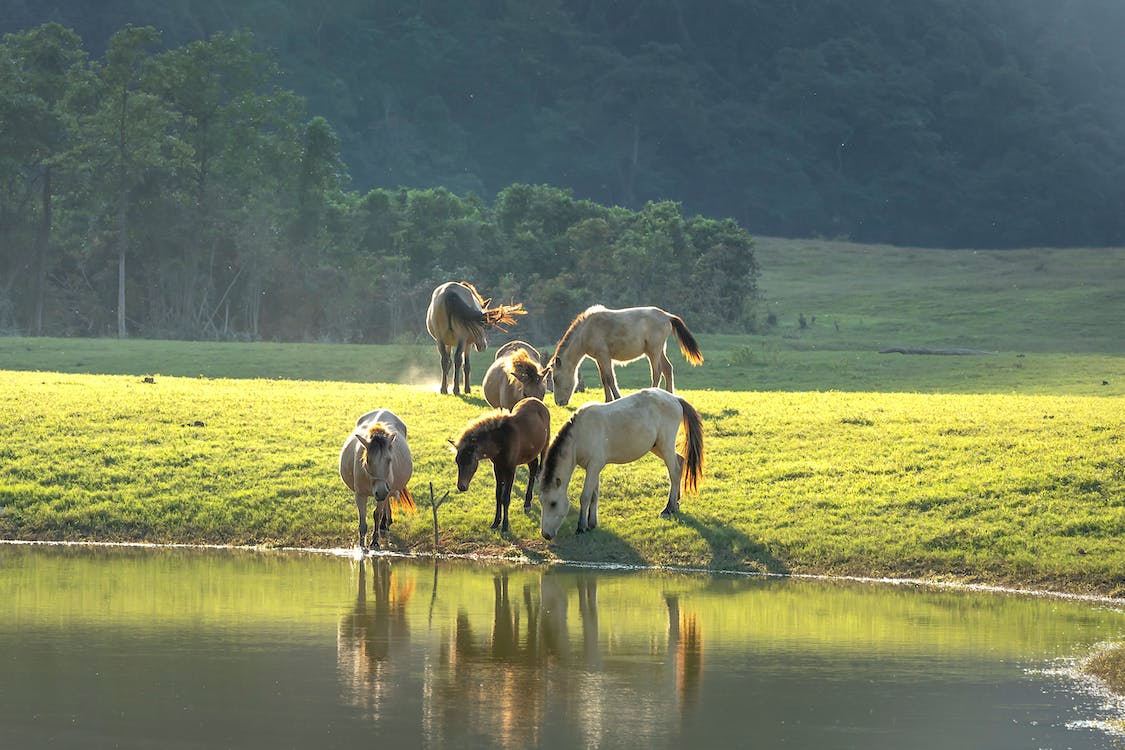
Access to water
A horse farm operation will use potable water in both the residence and the barn, and depending on the number of horses, the gallons used in the barn may far exceed the amount used in the residence.
Most rural areas don’t have access to a public water supply, so it’s important to have a good well (or wells) available, or that an aquifer exists underlying the property, from which a good water supply can be developed.
The primary uses of water on the farm are for watering and washing horses, general cleaning, dust control in training areas, and, in some cases, irrigation. Irrigation used to keep pastures green or to water hayfields can exceed all other uses. If available, surface water, from a pond, lake or stream, can often be used for irrigation purposes.
Availability of other utilities and services
Other utilities and services covers wastewater disposal, electrical hookup, heating energy source (natural gas, LP gas, fuel oil), internet availability, cell phone coverage and solid waste disposal. All are important to consider.
- In rural areas, septic tanks and drain fields are the most practical way to treat and dispose of wastewater. However, not all soils are conducive to the use of these systems. Percolation tests may have to be done to determine whether the soils are suitable.
- Natural gas is the preferred energy source for heating, but many rural areas will only have propane gas available. Horses generate a lot of body heat, so the need for space heating may be limited. Heating wash water and preventing horse’s drinking water from freezing can usually best by done with electricity.
How is the coverage?
Having good internet connection and cell phone coverage is becoming increasingly necessary. Some remote areas may still have connection problems.
How will you manage the stinky stuff?
Horse farms generate a considerable amount of solid waste in the form of manure, and you’ll want to consider how manure will be managed when planning a horse farm purchase. Options are spreading it on the land, perhaps giving or selling it to nearby farmers, or having it hauled to a landfill by a contract waste hauler.
Existing and Planned Structures
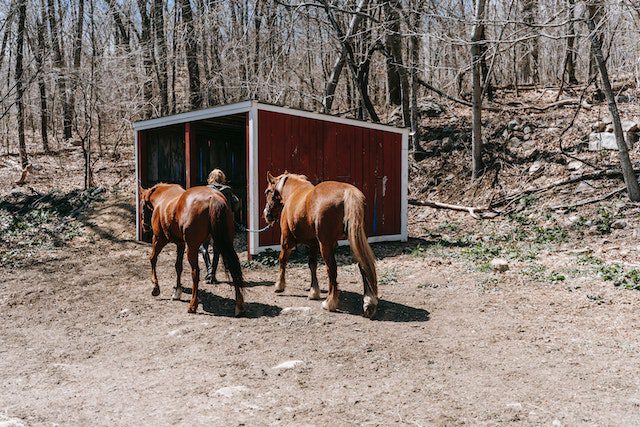 Whether you’re buying an existing horse farm or one with existing structures that can be renovated for horse related uses, inspect closely (1) the quality of the structures, including buildings and fences, (2) for the possibility of nuisance problems that result from poor layout or adoptive use, (3) to determine the cost of renovations necessary to fit your intended uses of the property.
Whether you’re buying an existing horse farm or one with existing structures that can be renovated for horse related uses, inspect closely (1) the quality of the structures, including buildings and fences, (2) for the possibility of nuisance problems that result from poor layout or adoptive use, (3) to determine the cost of renovations necessary to fit your intended uses of the property.
Get Help!
Find an agent that truly understands equestrian properties – if they don’t know what you’re talking about when you’re talking “horse”, they can’t adequately represent your best interests.
Our agents have experience buying & selling horse property – we work daily with specialty properties like horse farms, and often know of properties not yet available on the MLS. Or do your own due diligence to find one with the necessary knowledge.
And last, but certainly not least, consider the neighbors
Horse people are generally quite neighborly and easy to get along with. Generally, they like to network and socialize with people who have similar interests, like horses and country living.
That said, there are people who enjoy outdoor activities with little regard for environmental stewardship or the sensitivity of others, so before purchasing, it’s prudent to ask some questions about the the neighbors, or better yet, to meet them personally.
Whew, there it is.
Hopefully, that list of questions and considerations was helpful, and not too daunting. Yes, there’s a lot to consider before buying horse property, or any property for that matter.
But, as the saying goes, it’s also not rocket science, but rather simply a matter of doing your homework and due diligence. And of course, in that regard, it’s also important to work with a qualified and competent Realtor, like one of the professionals associated with Michigan Lifestyle Properties.






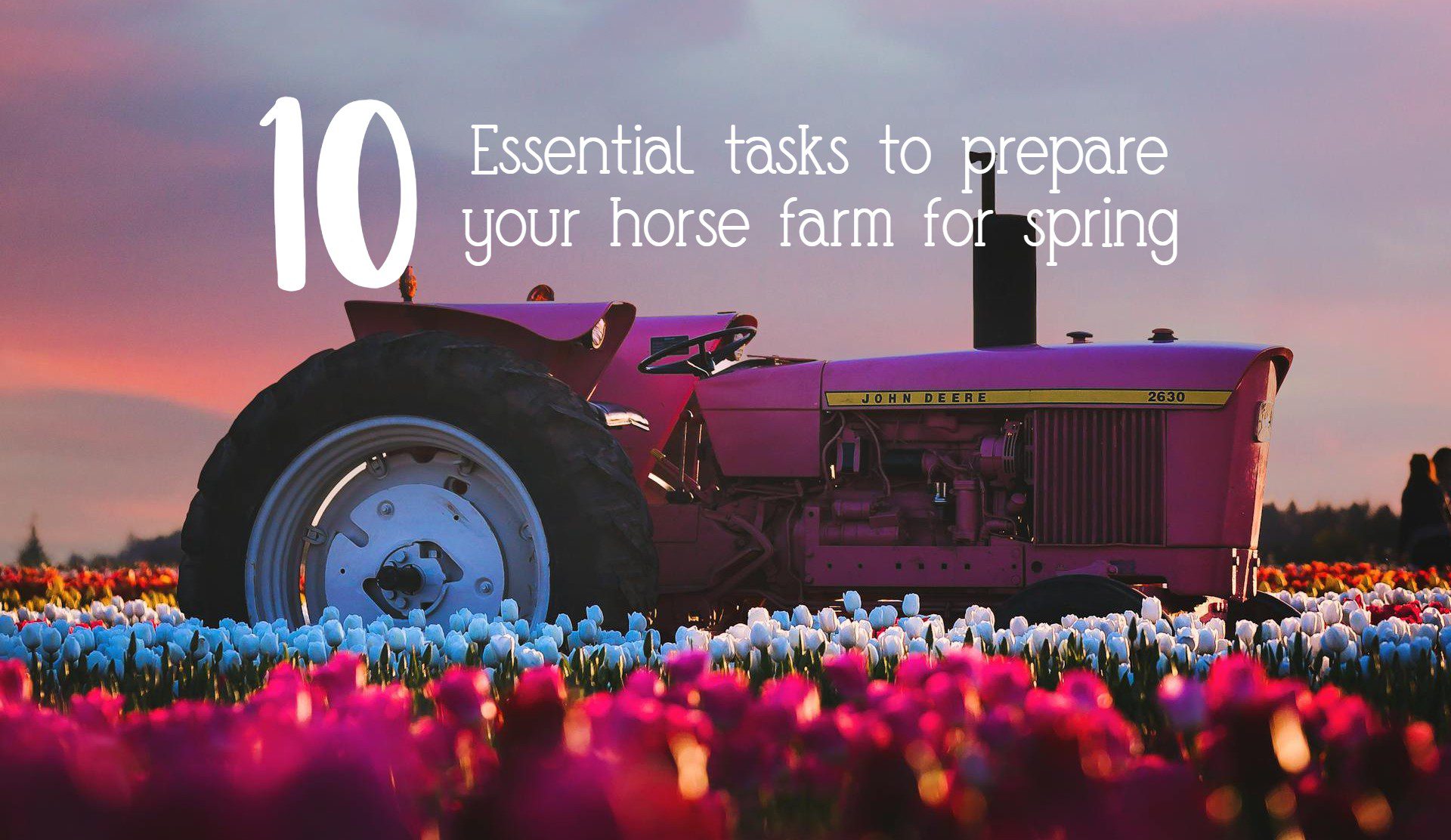
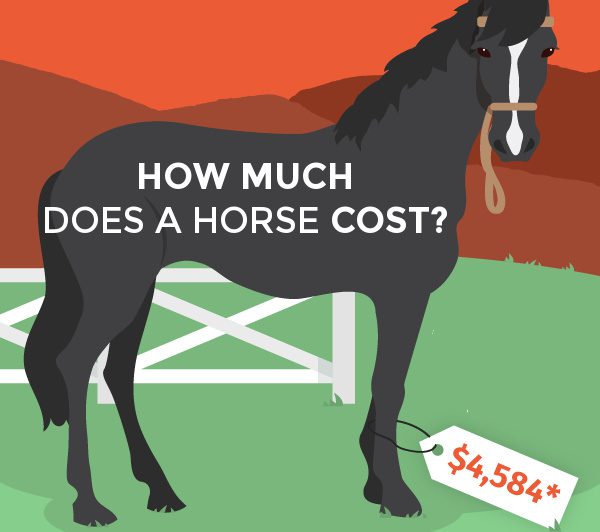
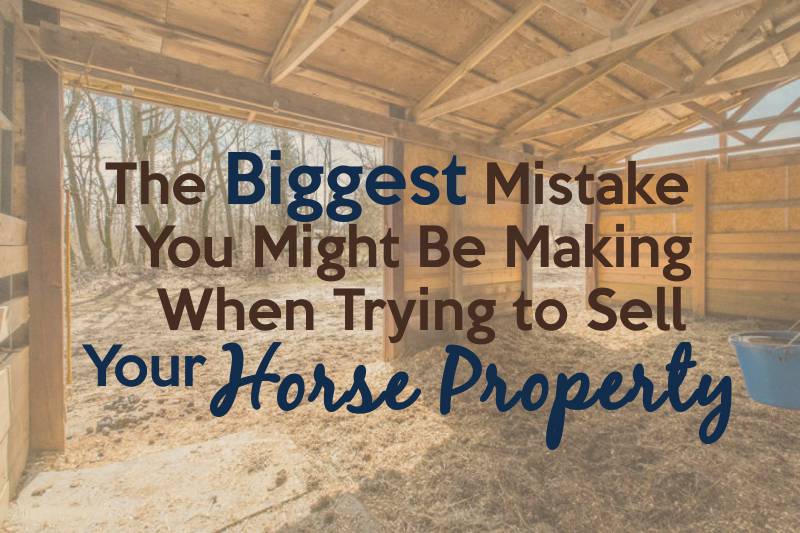

It’s great how you said that if you buy a horse property that already has existing structures but needs a little renovation then you have the best of both worlds. I love horses and I always since I was a little boy. I think it’d be great to have my own property one day where I can add whatever accommodations that I want to it but not have to worry about starting from scratch.